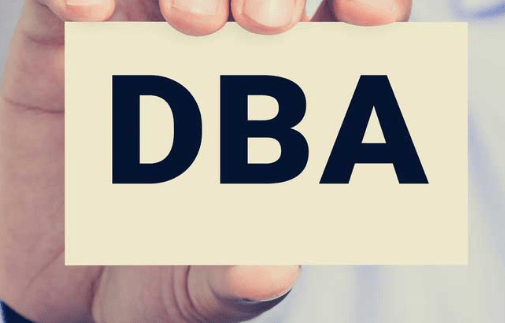Most times as business people we come across acronyms that we just can’t figure out especially when we are new in the field of business. In this article we will be explaining the acronym DBA, which means “Doing Business As”, to help you when it comes to filing your DBA.
What is Doing Business As?
A company can be said to be DBA (or doing business as) when it operates under a name that is different from its legal name. A company that files for a DBA, will be allowed to operate under a name that is different from its own, or a name under which the business is legally registered. Almost any business can benefit from having a DBA.
Who Needs to File Doing Business As?
Most companies that use DBA happen to be sole proprietorships. This is because most business owners do not want to use their names so they don’t get linked with the company, thus the adopt DBA. But if a business owner decides to use his/her name, then they will be no need filing for a DBA.
Doing Business As can also be filed when the ownership of the business must be made clear, to both the customers and the state. In case any issue arises concerning the business, the customers have the right to know who they are transacting with.
Benefits of Filing a Doing Business As
Many benefits accrue with filing a DBA, some of them include:
- Offering a business a great deal of privacy. This is because the business owners are not in use in the company’s name, thus it shields the business owner from unnecessary publicity.
- It makes for business expansion. This is because, with a DBA, it is much easier for business owners to expand their business coverage or try to penetrate a new market.
- It offers more value and attractiveness to business.
Tips for Filing DBA
Here are some tips that will guide you in filing for a DBA:
- Most states require that you renew your DBA after a set amount of time. Thus you must stay updated as to when you are supposed to renew, as failure to do so may have a severe impact on your business, marketing-wise.
- In case you operate under an assumed name that has not been registered, you can get slapped with big fines from your state regulatory agency.
- In some states, you can pay online, while others may require a money order or cashier check. Also in some states, you can file your paperwork online, while others will want notarized documents.
- To get a DBA as an LLC or corporation, you need to provide a certificate of good standing.
- Some situations do not warrant hiring a business attorney to help you file for a DBA. This is because the process is simple enough, that you can handle it on your own. Be it as it may, if you are confused about the process or have a more complicated business situation, it will be best to seek professional help.
- In certain states, you are required to file a new DBA if there is a change in the information provided in the original filing. These changes may include things like a change in officers (for a corporation), partners (for a general partnership), or members (for an LLC). But note that, in some states, you can just file an amendment under these circumstances.
When to File a Doing Business As
Many situations would necessitate a business to file as a DBA apart from the obvious fact of a business owner not wanting to be linked with his business. Here are some of the instances that would necessitate a DBA:
- Most times, a DBA is required by the bank, mostly when a sole business owner wants to open a bank account.
- In a situation when a client needs a contractor to file a DBA when bidding to get a project.
- If a company is expanding its business to areas that are not covered by the current business name, it will need a DBA.
How to Apply for a DBA
Before you start, it is best to check if you can register your assumed name with the secretary of state or another state agency, even though you may find registration handled at the country level in most states. Note that each country may have different forms and fees for registering a name.
The process of applying for a DBA is quite an easy and straightforward one. Here is how it goes:
- Search the database provided to ensure the name is not already in use.
- Submit a simple form along with the correct filing fee, which normally ranges between $25 and $100 as of 2017.
In some states, you may be required to publish a notice in the local newspaper to announce your new DBA name, and submit an affidavit to show that all the publication requirements have been fulfilled.


